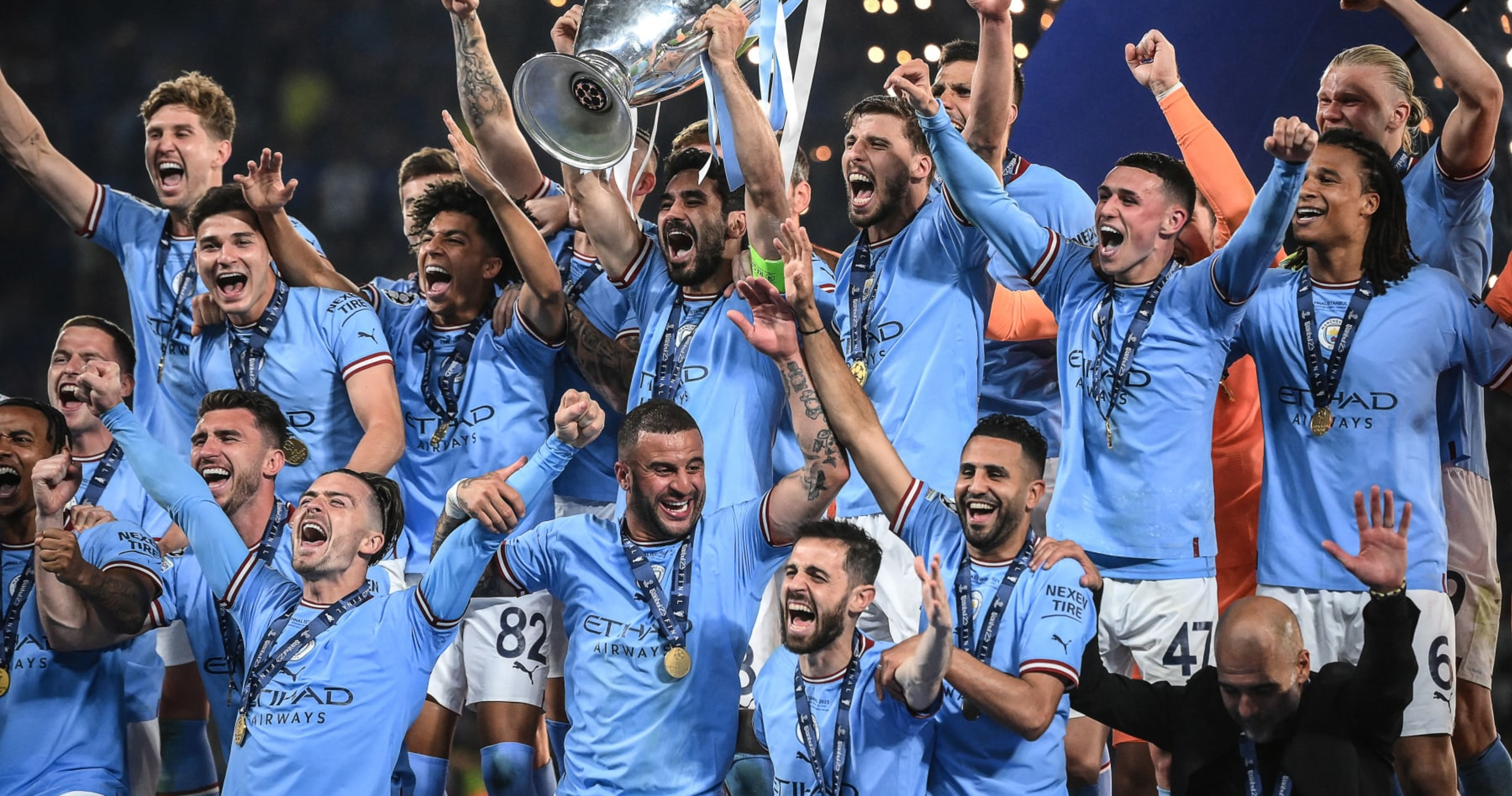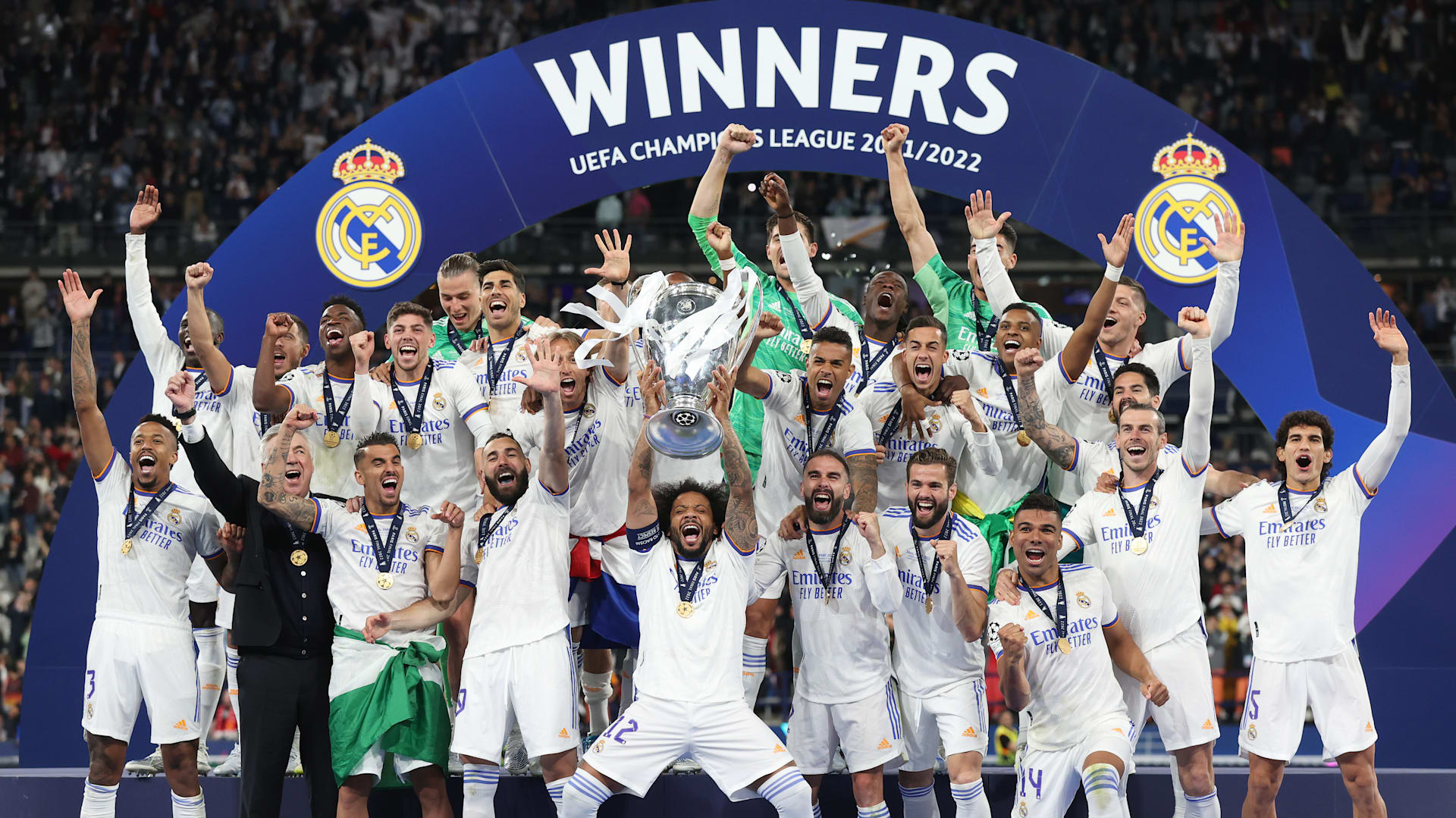Champions League

Photo by bigbabybonze on Pixabay
Welcome to the thrilling world of the Champions League
Welcome to the thrilling world of the Champions League, where footballing giants collide and dreams are made. In this prestigious tournament, clubs from across Europe battle it out for glory, showcasing their skills, tactics, and determination on the grandest stage of them all. From the heart-pounding group stages to the nail-biting knockout rounds, the Champions League captivates fans around the globe with its intense competition and breathtaking moments.
With a long and storied history, the Champions League has produced countless iconic moments and unforgettable matches that have become part of football folklore. From legendary comebacks to last-minute winners, this tournament has the power to make or break teams and shape careers.
Join us as we delve into the world of the Champions League, exploring its rich history, showcasing the teams and players who have become legends, and diving into the drama that unfolds each season. Whether you're a die-hard fan or simply curious about the beautiful game, the Champions League promises an unrivaled experience that will leave you on the edge of your seat. Get ready to witness the brilliance and passion that makes the Champions League the pinnacle of European football.
Overview of the UEFA Champions League
The UEFA Champions League, often referred to as the Champions League, is an annual club football competition organized by the Union of European Football Associations (UEFA). The tournament brings together the top teams from various European leagues, including the English Premier League, La Liga, Serie A, Bundesliga, and more. The Champions League is widely regarded as the most prestigious club competition in the world, attracting millions of viewers and generating immense excitement each season.
The tournament features a total of 32 teams divided into eight groups of four. Each team plays against the others in their group in a round-robin format, with matches held both home and away. The top two teams from each group advance to the knockout stage, which consists of two-legged ties played over home and away matches. The knockout stage continues until only two teams remain, who then compete in the final to determine the ultimate champion./cdn.vox-cdn.com/uploads/chorus_image/image/72592579/1255673085.0.jpg)
History of the UEFA Champions League
The Champions League traces its roots back to the European Champion Clubs' Cup, which was first held in the 1955-1956 season. The tournament initially featured only the champions of each European country's domestic league. However, over the years, it evolved to include multiple teams from each country, leading to a more competitive and diverse competition.
In 1992, the tournament was rebranded as the UEFA Champions League, with further changes to the format and structure. The addition of group stages and the inclusion of teams that finished in lower positions in their respective leagues allowed for more teams to participate and increased the overall excitement of the competition.
Since its inception, the Champions League has seen some of the greatest teams in football history compete against each other. Clubs like Real Madrid, Barcelona, Bayern Munich, and Liverpool have all left an indelible mark on the tournament, with multiple triumphs and memorable performances.
Format and Structure of the UEFA Champions League
The UEFA Champions League follows a well-defined format and structure that ensures a fair and competitive tournament. As mentioned earlier, the competition starts with a group stage consisting of eight groups of four teams each. These groups are determined through a draw that takes into account each team's UEFA coefficient, which is based on their previous performances in European competitions.
During the group stage, each team plays six matches, three at home and three away. The top two teams from each group advance to the knockout stage, where they compete in two-legged ties. The away goals rule is applied in the event of a tie over the two legs, providing an additional layer of excitement and strategy.
The knockout stage continues with the quarter-finals, semi-finals, and ultimately culminates in the final, which is a single match held at a neutral venue. The final is the pinnacle of the tournament, where the two best teams battle it out for the prestigious trophy and the title of Champions League winners.
Key Teams and Players in the UEFA Champions League
The UEFA Champions League has seen its fair share of dominant teams and exceptional players throughout its history. Certain clubs have established themselves as perennial contenders, consistently reaching the latter stages of the tournament and showcasing their quality on the European stage.
Real Madrid, with their illustrious history and record number of Champions League titles, stands out as one of the most successful clubs in the competition. The likes of Cristiano Ronaldo, Raul, and Zinedine Zidane have donned the famous white jersey and left an indelible mark on the tournament with their performances.
Barcelona, led by the genius of Lionel Messi, has also enjoyed immense success in the Champions League. With their free-flowing attacking style of play, Barcelona has mesmerized fans and opponents alike, capturing the trophy on multiple occasions.
Other notable teams include Bayern Munich, who have consistently been a force to be reckoned with, and Liverpool, who have experienced a resurgence in recent years under the guidance of Jurgen Klopp. These teams, along with many others, bring their own unique style and talent to the Champions League, making each season a spectacle to behold.
Memorable Moments and Upsets in the UEFA Champions League
The UEFA Champions League has provided fans with countless memorable moments and dramatic upsets over the years. From stunning comebacks to underdog triumphs, the tournament has a knack for producing unforgettable stories that leave a lasting impact.
One such moment that will forever be etched in Champions League history is the "Miracle of Istanbul." In the 2004-2005 final, Liverpool found themselves 3-0 down at halftime against AC Milan. However, a remarkable second-half comeback saw Liverpool score three goals to level the match and eventually win on penalties. It was a display of resilience and determination that will be remembered for generations to come.
Another remarkable upset came in 2012 when Chelsea, facing the mighty Barcelona in the semi-finals, defied the odds to progress to the final. Despite being down to 10 men for a significant portion of the match, Chelsea held on to secure a draw that saw them advance on away goals. It was a testament to the unpredictability and drama that the Champions League consistently delivers.
Top Goal Scorers in the History of the UEFA Champions League
Several prolific goal scorers have left their mark on the Champions League, etching their names into the record books with their remarkable goal-scoring exploits. Players like Cristiano Ronaldo and Lionel Messi have consistently topped the charts, captivating audiences with their sheer talent and ability to find the back of the net.
Cristiano Ronaldo, with his incredible athleticism and scoring prowess, holds the record for the most goals in the history of the Champions League. The Portuguese superstar has consistently delivered on the biggest stage, terrorizing defenses with his speed, skill, and lethal finishing.
Lionel Messi, often mentioned in the same breath as Ronaldo, has also left an indelible mark on the tournament. With his mesmerizing dribbling and clinical finishing, Messi has provided fans with countless moments of magic and has secured his place among the greatest players to have graced the Champions League.
The Impact of the UEFA Champions League on European Football
The UEFA Champions League has had a profound impact on European football, shaping the landscape of the game and influencing the way clubs and players are perceived. The tournament provides an opportunity for clubs from different leagues to compete against each other, fostering a sense of unity and creating a platform for showcasing talent on a global scale.
For smaller clubs, the Champions League offers the chance to make a name for themselves and attract top talent. A successful campaign in the tournament can elevate a club's profile, leading to increased revenue, sponsorship opportunities, and the ability to attract high-caliber players.
Furthermore, the Champions League has played a crucial role in the development of young players. The exposure to top-level competition and the opportunity to face off against established stars can accelerate a player's growth and provide invaluable experience that can shape their careers.
How to Watch and Stream the UEFA Champions League
With the advent of technology and the proliferation of streaming services, watching the UEFA Champions League has become more accessible than ever before. Fans can catch the action live on various platforms, ensuring that they never miss a moment of the thrilling matches and iconic moments that the tournament provides.
Television networks around the world broadcast Champions League matches, allowing fans to tune in from the comfort of their homes. Additionally, online streaming platforms and mobile apps provide an alternative for those who prefer to watch on their computers or mobile devices.
Many streaming services offer subscriptions specifically tailored to sports, including the Champions League. These subscriptions allow fans to access live matches, highlights, and exclusive content, ensuring they stay connected to the excitement and drama of the tournament.
The Business Side of the UEFA Champions League
Beyond the sporting spectacle, the UEFA Champions League is a major business enterprise that generates significant revenue and impacts various industries. The tournament attracts millions of viewers worldwide, making it an attractive platform for sponsors and advertisers looking to reach a global audience.
Broadcasting rights for the Champions League are highly sought after, with networks and streaming services bidding large sums of money for the privilege of airing the matches. This influx of revenue allows UEFA to invest in the development of football at all levels and support initiatives that promote the growth of the sport.
Furthermore, the Champions League provides an economic boost to host cities and their local economies. The influx of fans from around the world stimulates tourism, increases hotel bookings, and boosts revenue for local businesses such as restaurants, bars, and shops.
Conclusion: The Excitement and Legacy of the UEFA Champions League
The UEFA Champions League is more than just a football tournament. It represents the pinnacle of European club football, showcasing the best teams and players on a stage where dreams are made and legends are born. With its rich history, iconic moments, and thrilling matches, the Champions League captivates fans around the globe year after year.
From the passionate chants of the supporters to the dazzling skills of the players, the Champions League offers an unrivaled experience that brings people together and creates lasting memories. Whether you're a die-hard football fan or simply someone who appreciates the beauty of the game, the Champions League promises an unforgettable journey filled with drama, excitement, and the pursuit of glory. So buckle up and get ready to witness the brilliance and passion that makes the Champions League truly special.






































